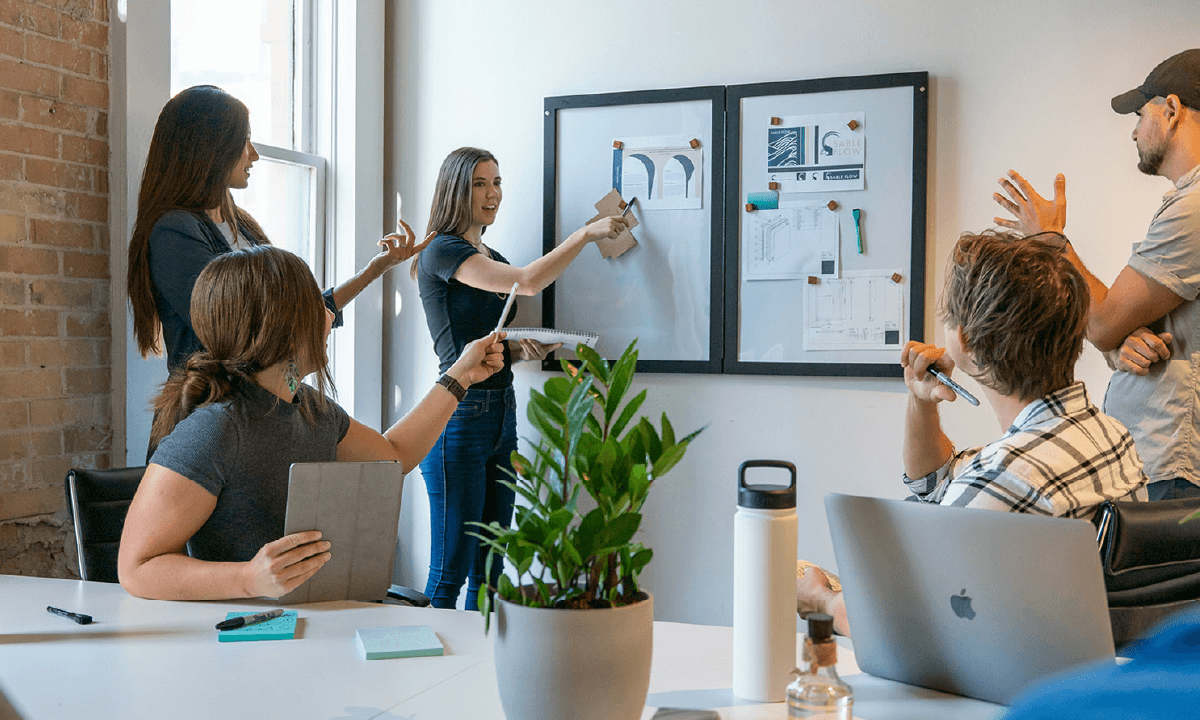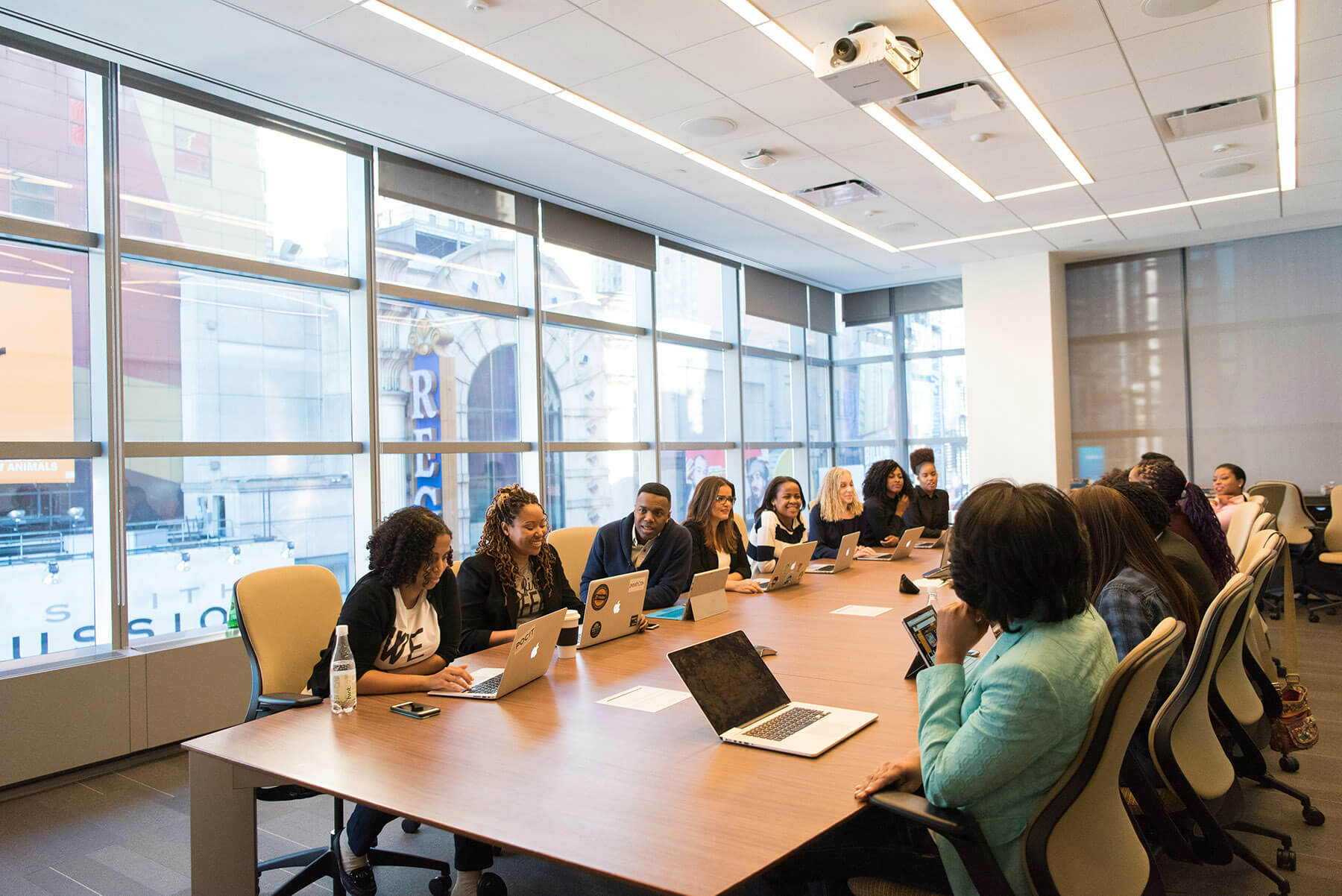IA Insights > Blog
How to Question Our Future
A stuck mind is disabled by complexity and uncertainty. In the face of our pandemic, stuck minds are yearning for a return to normal, as if the state of the world before the virus shut things down represented some ideal. Grieving the loss of our routines and interactions makes sense. I don’t want to minimize or dismiss the impact of what we’ve lost, what we continue to lose. On the other hand, focusing on getting back what we’ve lost misses the opportunity to consider what we might bring forth.
The author William Bridges built a consulting practice around his theory of “transitions,” which describes the human experience of confronting change. Bridges points out that the way we speak about change is very different from the way we experience change. We talk about change as an event with a before and an after. However, when humans are involved in change, we don’t simply adapt to a new set of circumstances. Humans, according to Bridges move through a three-stage transition as we become familiar with and learn to accept what is different.
Ironically, the first phase of the transitions process is “the ending.” In the ending phase, we focus on what is being lost or going away. We can’t give our attention to what is changing until we’ve made peace with what’s ending. I’ll come back to the second phase in a moment.
The third and final phase of a transition, according to Bridges is the “new beginning.” In a new beginning, we tentatively accept the post-change reality. We start to alter our habits and routines and give our attention to making things work given the conditions we find ourselves in.
Bridges calls the second phase of the transition process, “the neutral zone.” The neutral zone is a time of anxiety and ambiguity. In the neutral zone, people become polarized. Some are impatient to move into a new reality while some are unwilling to accept that a former reality has ended for good.
Surprisingly, the neutral zone also provides an opportunity for creativity. When you are not stuck in the past and you are not yet habituated to a new reality, possibilities present themselves. In describing the neutral zone, Bridges (1991) wrote, “When everything is going smoothly, it’s often hard to change things… People who are sure they have the answers stop asking questions. And people who stop asking questions never challenge the status quo” (p. 36).
The Unstuck Minds Compass Model is a good source of questions in times of uncertainty and complexity. The Compass Model suggests posing questions from four different directions or dimensions:
- Explore the context by asking, What’s changing?
- Analyze current structures by asking, What’s keeping things in place?
- Consider social networks by asking, Who needs what?
- Reorient your thinking by asking, How might we reframe our challenge?
Let me provide some responses to each of the Compass Questions and invite you to add your own answers in the comments section below:
What's Changing?
- We’re developing a deep appreciation for essential service providers and healthcare workers.
- We’re learning the depth of our interconnectedness in terms of social systems and infrastructure.
- Disparities in access to services, opportunities, and basic needs are becoming even more evident.
What's Keeping Things in Place?
- A false dichotomy between economic health and physical health.
- Territorial approaches to solutions rather than collaborating across boundaries.
- Politicizing problem-solving by only agreeing to solutions that help you maintain control and power.
Who Needs What?
- Leaders need to project competence and trustworthiness.
- Healthcare workers need to feel safe, well-equipped, and effective.
- Vulnerable populations need to feel protected, empowered, and able to safely access necessities.
How Might We Reframe Our Challenge?
Given what’s changing, what’s keeping things in place, and in consideration of people’s needs, the final question of the Compass Model invites us to change our questions. People with stuck minds are asking, “When can we return to normal?” People with unstuck minds recognize an opportunity to ask questions that create new futures. Here are some of my favorites:
- What will we miss about sheltering in place that we can include in our future routines?
- From an article in The Atlantic by Ed Yong: How might the society we return to be fairer and less vulnerable?
- What role do we want and not want technology to play in the way we work, learn, interact, and entertain ourselves?
- How do we make empathy and compassion a way of life when we’re not facing an emergency?
What are the questions worth asking during this time of transition for your organization? Learn more about Unstuck Minds
This blog was originally posted on Unstuck Minds.
About Jay Cone
Jay Cone has spent the past 25 years focusing on leadership development, strategic thinking and innovation and is the founder of Unstuck Minds. Prior to joining Interaction Associates, Jay worked in the food service industry as a training manager, Human Resources director, and internal consultant. Jay is a thought leader for Interaction Associates’ work in teams, innovation and strategic thinking. Jay is a regular contributor to Saybrook University’s Rethinking Complexity blog. His articles on strategy and leadership development have appeared in Rotman Magazine, The Journal of Global Business and Organizational Excellence, Training Magazine, and The American Society for Training and Development's Best of Customer Service Training. Jay served on the editorial review committee for David Straus' book, How to Make Collaboration Work, and contributed a chapter on accountability to Leadership for Transformation, edited by JoAnn Danelo Barbour and Gill Robinson Hickman. Jay served for five years on the faculty of the Executive M.B.A. program at The University of Texas at Dallas, where he taught innovation and collaboration. Jay is conducting research and writing a dissertation on organizational strategy formation to complete his Ph.D. program in organizational systems. Jay's current consulting practice focuses on senior team facilitation, strategic thinking, leadership development, and innovation.





